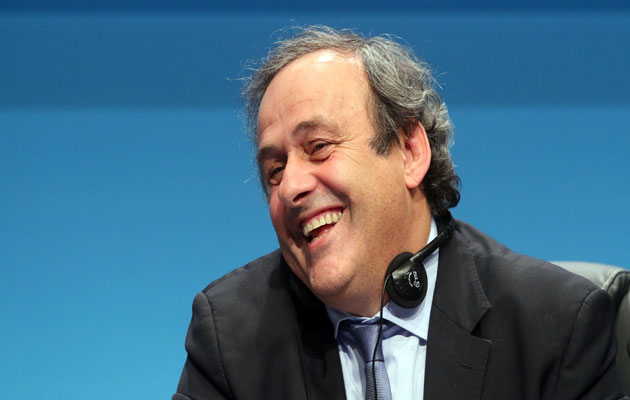UEFA is still standing four-square behind Michel Platini while the Frenchman contests his 90-day suspension from all football over allegations concerning a rogue payment of sFr2m.
Platini raged against perceived plots and leaks after the suspension was ordered last week by the ethics committee of world federation FIFA pending an investigation of the payment authorised in 2011 by Sepp Blatter, the FIFA president.
The verdict prompted UEFA to summon an emergency meeting at its headquarters in Nyon near Geneva of the chairmen of the 54 national associations followed by an executive committee gathering.
They decided, after hearing from Platini’s lawyer, that their own president be granted the presumption of innocence until and unless found guilty.
General secretary Gianni Infantino said that UEFA hoped for a final decision by the Court of Arbitration for Sport by mid-November and that the FIFA presidential election should go ahead as planned in February.
His careful words also suggested that UEFA leaders will discuss urgently in the next week whether another European candidacy should be submitted for the FIFA presidency just in case Platini fails in his attempt to clear his name.
The meetings were chaired by Spain’s Angel Maria Villar in his role as first vice-president of UEFA but Infantino was specific in noting that the FIFA and UEFA veteran should not be considered as interim head of UEFA.
Infantino said Platini’s lawyer had explained the background of the suspension and “all the facts about the working relationship between Mr Platini and Mr Blatter, including remuneration for work between 1998 and 2002.”
A subsequent statement agreed by both the national associations and executive committee supported Platini’s “right to a due process and a fair trial and to the opportunity to clear his name.”
The statement continued: “We strongly call on all instances involved in the current process – FIFA’s ethics committee, FIFA’s appeal committee and ultimately the Court of Arbitration for Sport – to work very rapidly to ensure that there is a final decision on the merits of the case by, at the latest, mid-November 2015.”
UEFA was optimistic that the sports courts – and, in particular, sport’s supreme court in Lausanne – could react with the essential speed.
Infantino told a news conference that the confidentiality regulations of the ethics process meant he was unable to comment on details surrounding the controversial payment which is the subject of an investigation by the Office of the Swiss Attorney-General.
The payment, for work Platini undertook on behalf of FIFA between 1999 and 2002, was not delivered until February 2011 and he had been unable – publicly at least – to come up with a plausible explanation for the nine-year hiatus.
Infantino added: “Of course there were some different opinions expressed but what everyone agreed on – whatever their general view – is that everyone supported Mr Platini as a person for all that he has done as UEFA president for European football in his career . . . as well as for the wish of not condemning anyone based on media articles.
“The truth, at the end, will be decided by an independent body recognised by all sports organisations in CAS. Everyone has the right to a fair trial.”
The meetings were also agreed that the FIFA presidency election, set for February 26, should not be delayed because the world federation needed a legitimate new leader and meaningful reform as soon as possible.
Whether Platini will be a candidate was uncertain and depended on the appeal process, though that is to presuppose that the FIFA ethics committee would provisionally approve him as a ‘fit and proper’ candidate while his appeal were still pending.
Infantino did concede to “a discussion about what happens next” which suggested that the UEFA executive will consider whether another candidate should be put forward in case Platini’s appeals fail.
If Platini were cleared, ultimately, then the stop-gap candidate could withdraw from the campaign. A likely prospect would be Holland’s Michael Van Praag for his familiarity with the process after having stood against Blatter earlier this year.
Van Praag ultimately withdrew shortly before the election to clear the way for Prince Ali of Jordan’s vain bid to oust Blatter.







